Reeve Autism Consulting: Live & Virtual Training
I offer both Virtual and On-Site Training for schools, districts and regions. Virtual training can be provided for an hour to a full day. On-site training is typically a full day but other arrangements can be made.
Special education training sessions can be customized to the district’s or group’s needs or new topics can be developed as needed. Standard workshops typically include lecture and discussion-based presentations with a make-and-take or practice opportunities as appropriate for the topic.
Sample of Popular Workshops
(Click Icon for Additional Information)
Reach Out Below for More Information
**Please note I am only offering virtual training at this time
Or Send me a Message Below
ORGANIZING CLASSROOM ENVIRONMENTS
Based on my book Setting Up Classroom Spaces for Students with Autism Spectrum Disorders, this presentation can be provided for 1/2 day or full day sessions and includes:
- Using CAPS and/or teaching plans to outline the needs of the students,
- Creating the classroom schedule,
- Setting up the physical environment,
- Organizing materials and visual supports, and
- Zoning or scheduling the staff.
Depending on the time allotted, participants often can work as teams to design an outline of their classroom schedule and environment during the training.
TAMING THE DATA MONSTER
Based on the upcoming book Taming the Data Monster, this workshop is typically a 1/2 day or full day session and focuses on:
- Critical elements of collecting data
- Different types of data collection strategies
- Ways to integrate data collection into the classroom
- Methods for analyzing and evaluating data
- Interpreting data to make needed changes in programming
SEEING IS BELIEVING: USING VISUALS TO SUPPORT LEARNERS ACROSS THE SCHOOL
Based in part on my book Building Independence: How to Create and Use Independent Structured Work Systems, this workshop focuses on using visual supports across a variety of settings to support independence of students and prevent or reduce challenging behaviors. This is a full or half-day workshop that includes a variety of functions of visuals including how to develop and use work systems. This presentation includes:
- Discussion of a variety of functions that visual supports can serve for students with autism and special needs
- Ideas for how to choose and create visual supports to address common issues
- Guidelines for when and how to fade visual supports
- Video and pictures of a variety of visual supports in use in different environments
BUILDING INDEPENDENCE THROUGH STRUCTURED WORK SYSTEMS
Based on my book Building Independence: How to Create and Use Independent Structured Work Systems.
This is typically a 1/2 day presentation. It could be a day-long presentation with a make-and-take or more information on building independence through effective uses of prompting and reinforcement.
Structured Work Systems are amazing tools to build independence, which is so important for our students in special education. They seem easy to understand. But knowing how to set them up to be successful in your classroom isn’t always so easy. In addition, there are a tons of “versions” of work systems out there, but not all of them are effective in moving students to independence.
Beginning with how independent work systems benefit the student, the family, and the classroom, this presentation will outline the elements of independent work systems. It will walk participants through making decisions for how to set them up for their individual students. Then it will focus on how to teach students to use work systems effectively, types and examples of tasks for different ages and functioning that work well with work systems, and how to take data and increase difficulty of the system as the student progresses.
EVIDENCE-BASED PRACTICES IN AUTISM SPECTRUM DISORDERS
This presentation is an overview of the evidence-based practices based on the research literature and the reports of the National Professional Development Center for Autism Spectrum Disorders and the National Autism Center. The presentation includes a summary of the research, an overview of each strategy and examples of implementation of the strategy. Strategies for evaluating claims of effectiveness of interventions are also discussed as well as ways that the strategies can be implemented in a school environment.
BEHAVIORAL PROBLEM SOLVING
This day-long or multi-day presentation focuses on the process of understanding the underlying functions of challenging behavior, completing functional behavior assessments and developing behavior support plans. Particular focus is paid to helping participants match hypothesis statements to data collected, and developing strategies for the behavior support program that are based on the results of the FBA. Further emphasis is placed on problem solving the match between function-based interventions and the implementation in the natural environment. Examples and videos are used to encourage audience participation regarding determining functions of behavior and data collection as well as creating behavioral support plans. Teams can bring assessment information and work together to develop a behavioral support plan with coaching as part of this training as well.
MAKING THE IEP PROCESS FUNCTIONAL FROM BOTH SIDES OF THE TABLE
This presentation can be developed into a half or full-day workshop for families, school staff or a combination of participants with tips for families and for school staff surrounding each point. The focus is on the IEP process (rather than goals and objectives) and how to avoid dangerous assumptions about the other parties, how to effectively advocate for students (for staff and families), and how to communicate effectively across environments.
THAT'S WHY THEY DO THAT! NOW WHAT DO I DO?
This presentation can be developed into a half or full-day workshop for families, school staff or a combination of participants with tips for families and for school staff surrounding each point. It works wonderfully for general education audiences.
Students with autism spectrum disorder (ASD) present and face challenges in the classroom that result in challenging behavior. This workshop will begin by exploring the connections of the challenging behaviors often observed in the classroom to the characteristics of ASD. With that foundation, the presenter will share case studies and examples to help participants look for the functions of challenging behavior and connect challenges with communication with problem behavior. Building on those connections, the speaker will review how changes to the environment and teaching strategies can prevent challenging behavior from occurring. Next, teaching appropriate replacement behaviors focused on the outcomes of a functional behavior assessment will be discussed for long-term behavior change. And finally, the presentation will focus on methods for responding to challenging behaviors when they occur. These methods will include how to assure safety while de-escalating behaviors and attempting to avoid reinforcing the behaviors and limiting the impact on the overall classroom.
*Disclaimer, this post contains affiliate links for books. This means you pay the same amount but Amazon pays me a little amount for sending you to them. However, feel free to buy the books wherever you find them.
Meet Christine Reeve
Ph.D., BCBA-D
From running Autism Classroom Resources, to creating teacher resources on TeachersPayTeachers as Autism Classroom News, my passion has always been about bringing special educators together and helping them serve their students in the best ways they can. I have spent the last 20 years working with a wide variety of special education programs as a behavior specialist, an administrator, and primarily as a trainer and consultant. Teachers should never feel like they teach on an island. I want to change that by providing a site where special educators can come together to learn ways to make their jobs easier, to support each other, and to put the excitement back in their teaching.




SOCIAL SKILLS & AUTISM: REDEFINING SUCCESS IN SCHOOLS
Focused on understanding the social skills differences of individuals on the autism spectrum, this presentation discusses what success looks like for all students and the impact that soft skills such as social skills can have on that success. This is particularly relevant for staff supporting those students in the general education curriculum who will need additional assistance and support to use their education to lead productive lives after school, but it is appropriate for all ages across the spectrum. An overview of the social differences and difficulty with the hidden curriculum, as well as their connection with challenging behaviors, will lead to a discussion of evidence-based strategies to address these issues and teach new skills. In addition to a discussion of strategies this presentation also addresses ways to make school models work for students with significant social difficulties and how current research in the area informs practice.